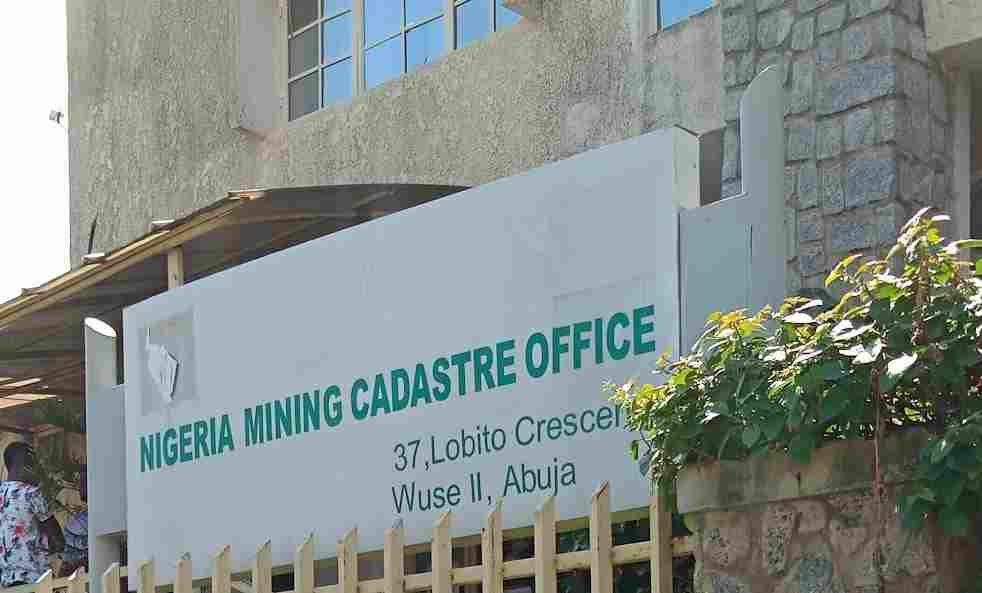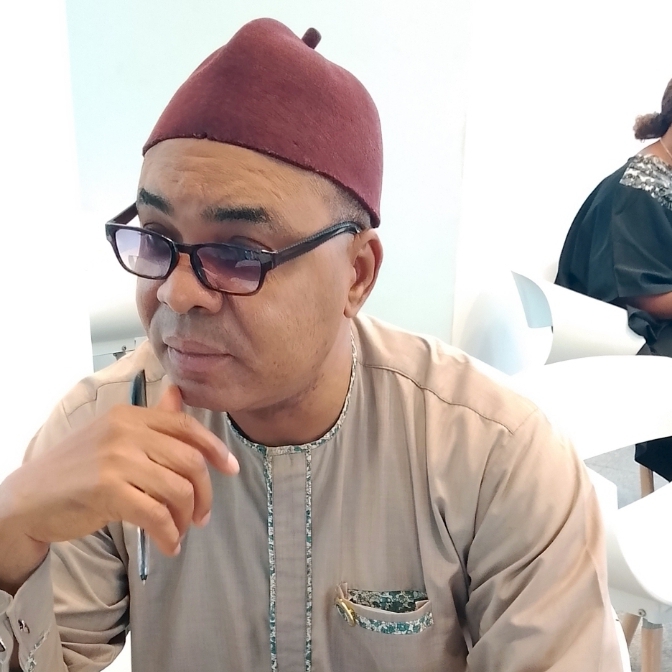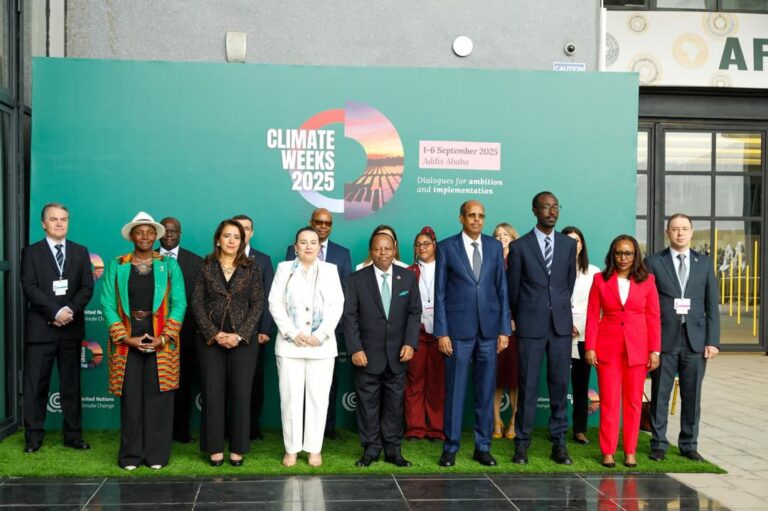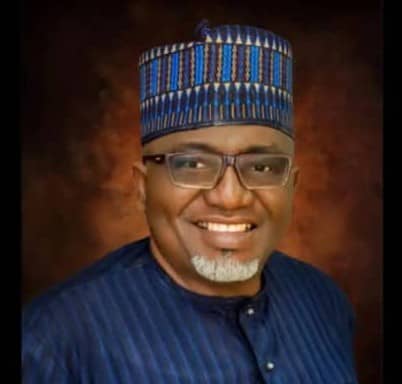
By Steven Kefas
The Nigerian Mining Cadastre Office (MCO) is experiencing unprecedented upheaval as Director General Engr. Simon Obadiah Nkom initiates what he terms a nationwide staff transfer exercise. This dramatic shakeup, which commenced on Monday 1st September with headquarters staff being asked to leave, has thrown the already troubled institution into chaos. While Nkom claims these transfers aim to “correct the mistakes” of his tenure with just one year remaining in office, this move raises more questions than it answers about the true state of Nigeria’s mining sector governance.
A Pattern of Corruption Laid Bare
The current crisis at the MCO is not an isolated incident but the culmination of years of documented corruption and mismanagement. Our previous investigations have exposed a web of corrupt practices including the systematic issuance of overlapping mining titles, brazen bribery schemes, and the deliberate sabotage of legitimate mining operations. These revelations have sent shockwaves through Nigeria’s mining community and attracted unwanted international attention to the sector’s governance failures.
The timing of Nkom’s “teamfer” initiative is particularly suspect. After years of turning a blind eye to corruption within his organization, the Director General’s sudden awakening to reform coincides conspicuously with increased media scrutiny and mounting international pressure. The daily meetings and chaotic office environment described by sources suggest an organization in panic mode rather than one implementing thoughtful reform.
The Transfer Dilemma: Reform or Cover-Up?
The nationwide staff transfers orchestrated by the MCO leadership present a troubling dichotomy. If these transfers represent genuine efforts to address corruption, why are corrupt officials being relocated rather than prosecuted? If Nkom truly knows “the bad ones” as he claims, the appropriate response should be immediate suspension, investigation, and prosecution, not geographical redistribution.
The complaints from individuals “engaged in corrupt practices” about these transfers reveal the entrenched nature of corruption within the MCO. These are not innocent civil servants being inconvenienced by administrative changes; these are individuals whose illicit activities are being disrupted. However, transferring corrupt officials to new locations without addressing their criminal behavior merely exports the problem rather than solving it.
The Federal Government’s anti-corruption stance demands more than cosmetic changes. Corrupt officials who have “sabotaged the efforts of the FG” must face the full weight of the law. Anything less sends a message that corruption carries no real consequences, encouraging further malfeasance and undermining public trust in Nigeria’s institutions.
Nigeria’s Conspicuous Absence at ADU 2025
Perhaps the most telling indicator of the MCO’s crisis is Nigeria’s glaring absence from the 2025 Africa Down Under (ADU) conference in Australia. For a nation with Africa’s largest economy and significant mineral resources, this absence is both unprecedented and deeply concerning. While the Nigerian Ambassador to Australia attended with her assistant from Canberra, the complete absence of any delegation from Nigeria speaks volumes about the current state of the mining sector.
This absence appears directly linked to fears surrounding the ongoing international arbitration proceedings filed by the Jupiter Critical Minerals Project against the Nigerian government. The prospect of being served with arbitration notices has apparently spooked Nigerian officials into avoiding one of Africa’s most important mining conferences. This behavior projects weakness and guilt on the international stage, damaging Nigeria’s reputation as a reliable destination for mining investment.
The Jupiter arbitration case itself stems from the MCO’s chaotic management of mining licenses and the broader governance failures that have characterized the sector under current leadership. When a government becomes so afraid of facing international legal scrutiny that it abandons important diplomatic and economic forums, it signals a crisis of legitimacy that extends far beyond administrative incompetence.
Environmental Catastrophe and Chinese Exploitation
While the MCO focuses on internal reshuffling, Nigeria’s mining sector faces an environmental crisis of unprecedented proportions. Chinese mining companies, operating with little regard for environmental safety standards, are systematically destroying ecosystems across the country using outdated and environmentally destructive mining technologies. From the tin mines of Jos to the gold fields of Zamfara, these operations leave behind poisoned water sources, degraded farmland, and communities struggling with the health consequences of irresponsible mining practices.
The MCO’s failure to enforce environmental standards has created a regulatory vacuum that predatory operators have exploited. While legitimate mining companies struggle with bureaucratic obstacles and corrupt demands for bribes, environmental criminals operate with impunity, often with the tacit approval of compromised officials within the MCO system.
The human cost of this environmental destruction cannot be overstated. Communities across Nigeria’s mining regions report increased rates of respiratory diseases, water-borne illnesses, and agricultural failures directly linked to irresponsible mining operations. Children are growing up in environments poisoned by mercury, lead, and other toxic substances released through substandard mining practices.
The Imperative for Comprehensive Reform
The current shakeup at the MCO, while generating reactions in the organization, falls woefully short of addressing the systemic corruption that has plagued the Mining Cadastre Office. Cosmetic transfers and administrative reshuffling cannot resolve institutional rot that requires surgical intervention. What Nigeria needs is not another round of shifting the deck chairs on the Titanic but comprehensive reform that addresses the root causes of corruption and mismanagement.
An independent investigation into the MCO’s activities over the past five years is not just advisable; it is essential for restoring credibility to Nigeria’s mining governance. This investigation must examine all aspects of the office’s operations, including license issuance procedures, environmental compliance monitoring, and the financial relationships between officials and mining operators. The investigation must be conducted by external bodies with no ties to the current administration to ensure objectivity and thoroughness.
Furthermore, the investigation must have the power to trace financial flows, examine communications between officials and private operators, and assess the true extent of the damage done to Nigeria’s mining sector. Only through such comprehensive scrutiny can Nigeria begin to understand the full scope of the corruption and develop effective countermeasures.
A Call for Leadership Change
Engr. Simon Obadiah Nkom’s continued leadership of the MCO represents a fundamental obstacle to meaningful reform. His admission that the disabling of the MCO and nationwide transfer of staff is required to remediate the “mistakes” he has made during his tenure as DG is a huge admission of his failure. (To deflect such criticism the claim then follows that his mistake was to accept the cadastre system overseen by his predecessor Mohammed Amate, the pioneering DG of the MCO. Amate, recently deceased, was held in high esteem by all levels of the mining fraternity in Nigeria and in his former roles in the oil and gas sector. Under Amate’s tenure, many current mining operators contend, the cadastre system was workable and was accessible online – both goals the current $60million contract with German company GAF has failed to achieve. Nkom officially launched its new online Cadastre System in November 2022. Three years later the system has been offline more than online with long periods of no public access. At the launch of the new system Nkom stated, “the system will encourage foreign investment in the sector. More people will be able to see that there is transparency, and Nigeria will benefit from these aspects in terms of greater revenue generation.” The promised transparency and foreign investment have not materialized. As to the revenue generation, a 12-fold increase in tenement fees is punishing local Nigerian exploration companies and filling the MCO coffers with “fake” profits.
Nkom’s tenure has been marked by the very corruption and mismanagement he now claims to be addressing. Genuine reform requires fresh leadership untainted by the current crisis and committed to transparency, accountability, and the rule of law.
Nkom’s resignation is not merely advisable; it is a prerequisite for credible reform. He has already overstayed his term. In late 2022 Nkom convinced President Buhari to renew his term as DG MCO in order to head off the possibility of the next President not renewing Nkom’s appointment. The appointment was confirmed in January 2023 before the Federal election. Nkom’s departure would signal the government’s serious commitment to addressing corruption in the mining sector and create space for the independent investigation necessary to chart a new course forward. Continued retention of leadership associated with the current crisis undermines any claims of serious reform intent.
Declaring a State of Emergency
The convergence of corruption, environmental destruction, and international legal challenges facing Nigeria’s mining sector demands extraordinary measures. The Federal Government must declare a state of emergency in the mining sector, suspending normal operations while comprehensive reforms are implemented.
This emergency declaration should include the immediate suspension of new mining license issuance, mandatory environmental audits of all active operations, and the establishment of an interim management structure for the MCO staffed by technocrats with proven integrity and experience in the mining sector. Additionally, all Chinese mining operations using substandard technology must be immediately suspended pending comprehensive environmental and safety assessments to be conducted by credible international mining experts.
The emergency period should be used to completely overhaul the regulatory framework governing Nigeria’s mining sector, establish robust environmental protection mechanisms, and create transparent, corruption-resistant procedures for license issuance and monitoring. The overhaul should probe why GAF, the German contractor that built the failed cadastre system as a World Bank funded project, has not rectified the dysfunctional system. This is not merely an administrative challenge but a national security imperative that affects Nigeria’s environmental sustainability and international reputation.
The Path Forward
Nigeria’s mining sector possesses immense potential to contribute significantly to national development and economic diversification. However, realizing this potential requires leadership committed to transparency, environmental responsibility, and the rule of law. The current crisis, while painful, presents an opportunity for fundamental transformation if the political will exists to pursue genuine reform.
Court Restrains NUPENG From Shutting Down Dangote Refinery
The international community is watching Nigeria’s response to these challenges. The country’s handling of the current mining sector crisis will significantly influence future foreign investment decisions and Nigeria’s standing in global mining forums. The choice is clear: continue with cosmetic changes and face continued international isolation, or embrace comprehensive reform and restore Nigeria’s position as a responsible mining nation.
The MCO shakeup represents either the beginning of genuine reform or an elaborate exercise in damage control that is compounding as the next election looms. For the sake of Nigeria’s future, the government must choose transparency over opacity, prosecution over protection, and genuine reform over political theater. The mining sector’s rehabilitation demands nothing less than complete transformation, and that transformation must begin with transparency and accountability at the highest levels of leadership.
Steven Kefas is a journalist, activist and mineral enthusiast with background in Mineral Resources Engineering (MRE) from Kaduna Polytechnic



